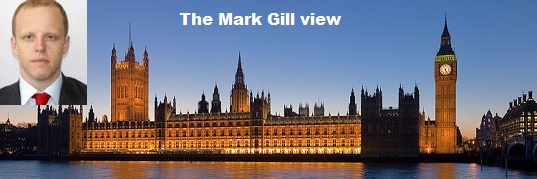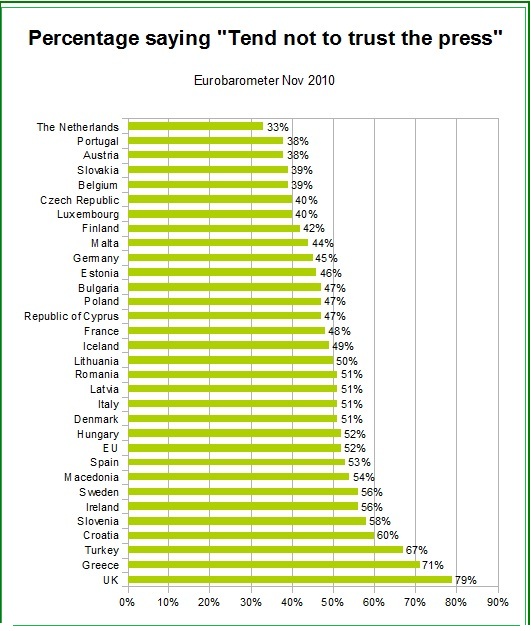Will the scandal impact on public views of the press?

Mark Gill puts it in an international perspective
The phone hacking scandal is unlikely to make a huge difference to the public’s view of the press. The chart below shows the proportion of people who “tend not to†trust the press, from across a range of European countries. This survey was conducted in November 2010 and clearly shows that well before the present media scandal, the UK public stood out for being by far the most sceptical about their newspapers.

With 79% of the UK public who “tend not to trust†the press and just 18% who “tend to trust†them, there’s not much further for the reputation of the newspaper media to fall. On this measure, only the Greek public comes close to the UK for media scepticism. In many ways, the British public’s reaction to the newspaper hacking allegations feels similar to its reaction to the MPs’ expenses scandal. Lost of shock and anger, but for the most part rather than changing many people’s opinions, it reinforced their prior perception that most politicians are “in it for themselvesâ€.
But will the scandal impact on the British public’s trust in the media more generally? The UK public is as trusting of television (51% tend to trust it) and radio (55%) as the average European. And we much more favourable towards these two media than of the press.
Perhaps it is the reputation of the police that will take the greatest hit? 71% of the UK public “tend to trust†the police – significantly higher than the 64% European average. This has the potential to fall a long way if the corruption in the police is proven to be widespread and not isolated to just a few officers.
Mark Gill is former head of political research at Ipsos-MORI and co-author with Bob Worcester, Roger Mortimore, Paul Baines of Explaining Cameron’s Coalition